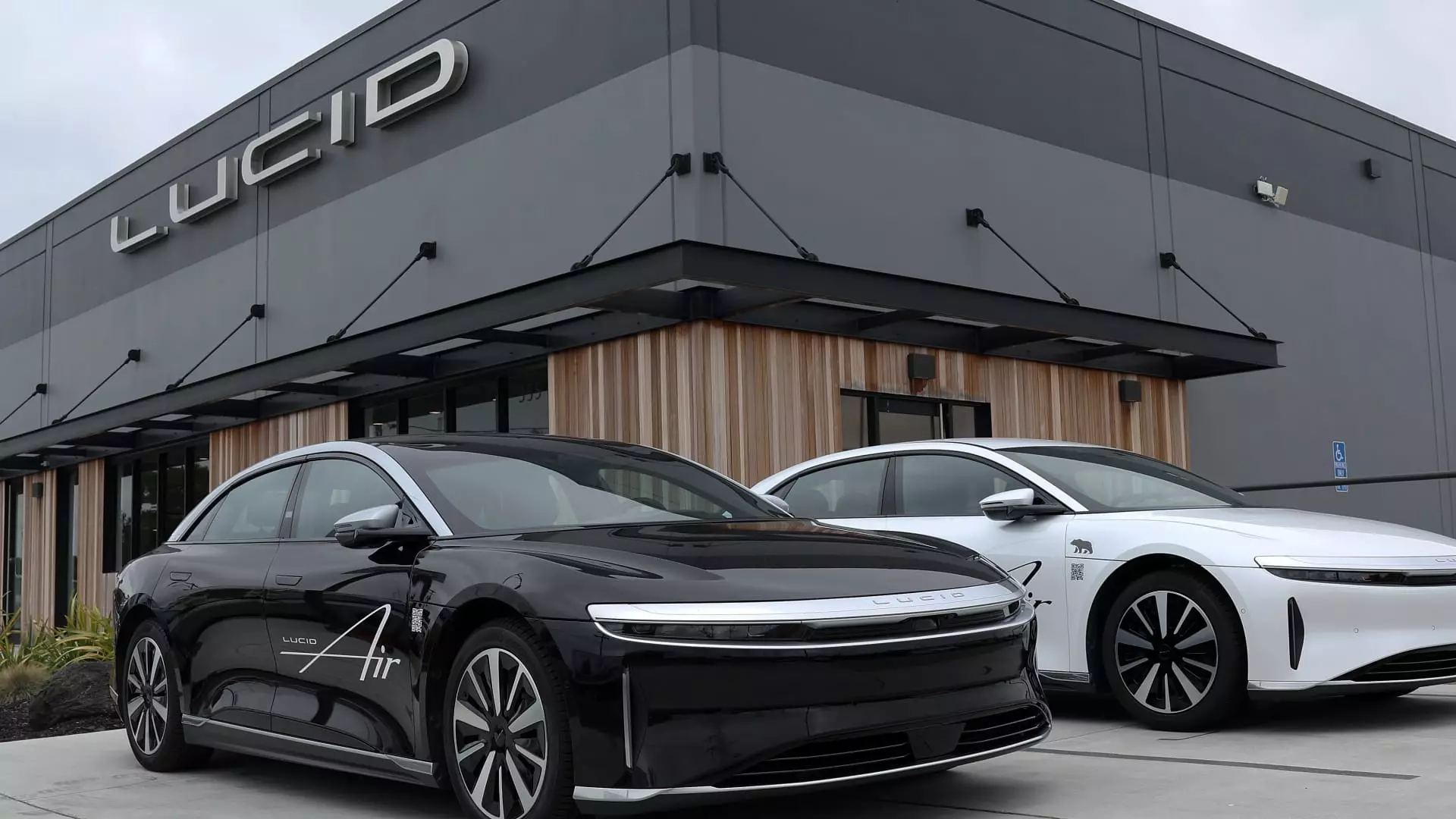Lucid Group: Navigating Challenges and Embracing Growth

Lucid Group, an emerging player in the electric vehicle (EV) market, recently announced its third-quarter performance, which offered a mixed bag of results against Wall Street’s expectations. While highlights emerged in the form of surpassed revenue estimates and strategic cost-cutting, the company still faces significant hurdles, including widening losses and operational challenges.
In a notable quarterly report, Lucid Group reported an adjusted loss of 28 cents per share, slightly better than the expected loss of 30 cents. Additionally, the revenue of $200 million exceeded projections of $198 million, reflecting a cautious optimism in the company’s financial landscape. Following the announcement, shares rose by over 8% in after-hours trading, showcasing a positive response from investors who had previously been underwhelmed by the company’s stock performance throughout the year. Despite these optimistic signs, the stark reality remains that the company’s net loss deepened to $992.5 million from a loss of $630.9 million the previous year, indicating that while revenue may be rising, expenses are rising even faster.
CEO Peter Rawlinson characterized the quarter as a “landmark” moment for Lucid, highlighting record deliveries of 2,781 vehicles. This figure signifies a crucial step forward for the company, which is deeply invested in forging a foothold in the competitive EV market. Rawlinson emphasized meeting both financial and production targets, which may bode well for investor confidence moving forward. The reported financial performance, however, is clouded by substantial research and development expenses totaling $324.4 million and selling, general, and administrative costs reaching $233.6 million—an increase of 40.1% and 23.1% year-over-year, respectively.
In light of increasing expenses and losses, Lucid has embarked on a series of aggressive cost-cutting initiatives designed to streamline operations. During a recent earnings call, acting CFO Gagan Dhingra assured stakeholders that the company is scrutinizing costs with an exhaustive approach, leaving “no corner” untouched. These measures are essential as Lucid aims to maintain its trajectory towards producing approximately 9,000 vehicles by year-end, reflecting a modest increase from the previous year’s production figures.
Notably, Lucid highlighted its capital position, which stood at a considerable $5.16 billion at the end of the quarter, bolstered by a recent stock offering that garnered mixed reactions from investors. While the capital raise was strategic to fund ongoing operations and growth, concerns linger regarding the long-term sustainability of such funding mechanisms in the face of continuous cash burn and fluctuating stock performance.
As Lucid positions itself for future growth, the company remains heavily invested in expanding its manufacturing capabilities. The expansion of its Arizona factory, coupled with plans for a second manufacturing plant in Saudi Arabia, underscores a commitment to not only meeting current demand but also scaling production to meet expected future needs. Additionally, the anticipated launch of the Gravity SUV, set to begin consumer production by the year’s end, is expected to bolster the company’s product offering and attract a wider customer base. This move reflects Lucid’s understanding of consumer preferences shifting towards SUVs in the EV segment.
Moreover, the development of advanced powertrain technology and plans to enhance its retail and service networks are indicative of a forward-thinking approach. The company is aware that to thrive in the competitive EV market, innovation must coexist with operational efficiency.
While Lucid Group exhibits promising signs through its recent financial results and strategic initiatives, the company faces a continual balancing act between growth ambitions and financial realities. As it cuts costs and ramps up production, stakeholders will be closely monitoring how efficiently Lucid can navigate its current challenges while positioning for future success. The road ahead will demand agility and resilience as the company carves out its path in the rapidly evolving world of electric vehicles.





